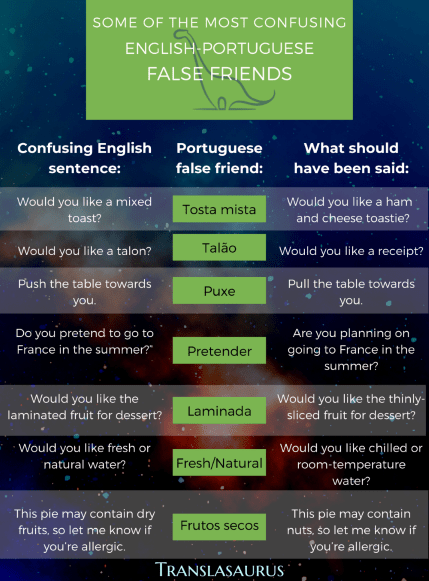The person translating doesn’t have the knowledge they need. They don’t understand the other language/culture well enough to transfer the right meaning into their own language.
Culture-specific ideas and traditions pop up all over the place, but if you don’t know what to look out for, you may miss them altogether. This is true for words and phrases, but equally applicable to concepts. Especially when each culture thinks their interpretation is universal.
Here are some examples:
a. What do you expect when you order a coffee?
A British person would probably reply: A mug filled with coffee, topped up with milk.
A Portuguese person would probably reply: An espresso cup filled with strong black coffee.
Now imagine a café serves coffee in Portugal and gets their menu / board translated into English. Café (coffee in Portuguese), of course, can be translated directly as coffee, so someone unaware of this difference would be likely to do just that. An English tourist walking by may be dying for an (English) coffee, and order one, but be presented with an espresso. Would they drink it anyway, screwing their face up at the bitter taste? Or leave it, aware that it’s stronger than what they would normally drink. Would they be asked to pay for it anyway?
If the café owners don’t speak English, it is likely no solution would be reached and the tourist would leave, an unhappy customer.
If only the board or menu had pointed out that they could have a…
“Meia de Leite” – a mug filled with half coffee, half milk, or even a
“Galão” – a glass with an espresso in it (about ¼ of the glass), topped up with milk.
These short explanations may have made all the difference to the tourist’s experience in the café, and their likelihood to return.


